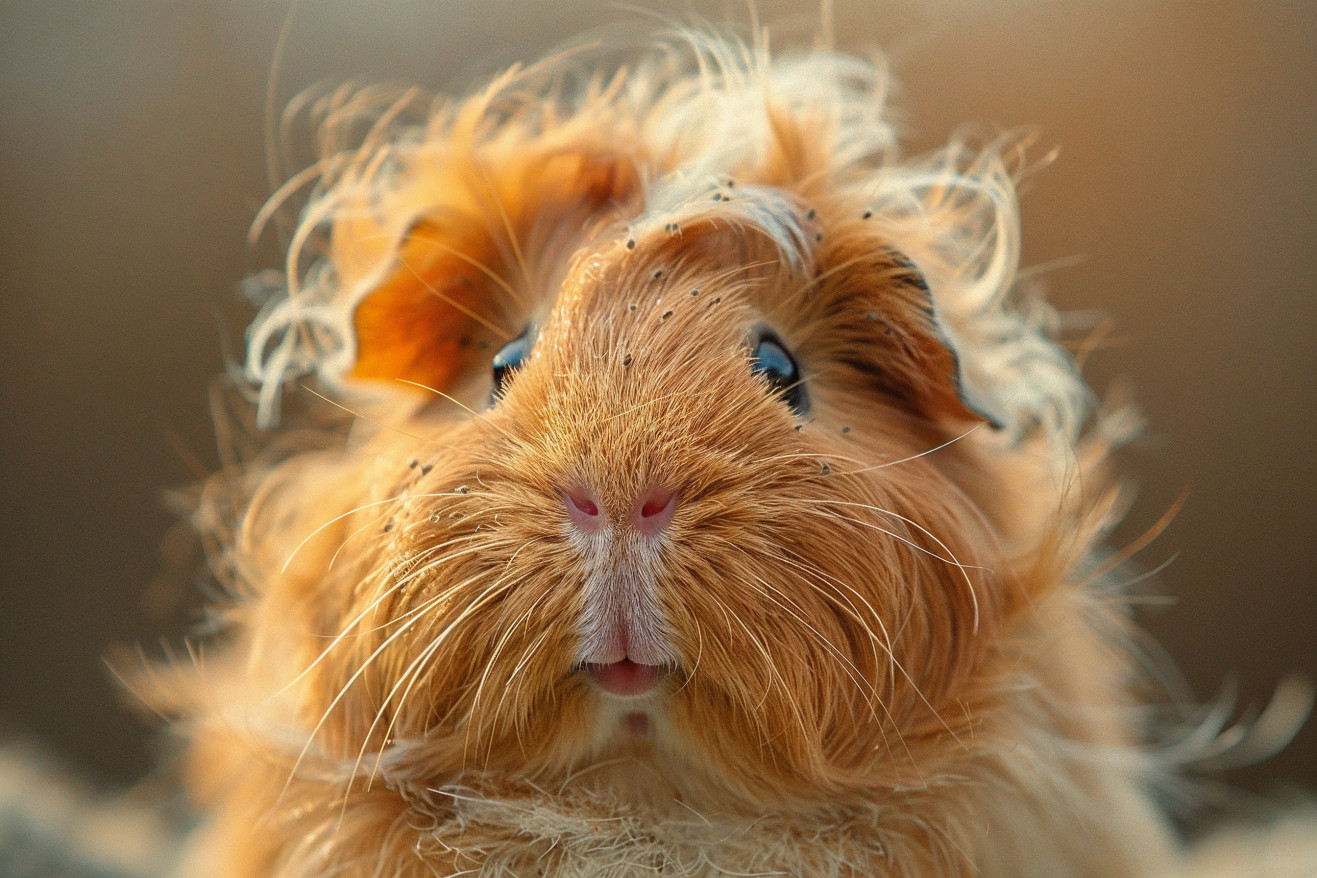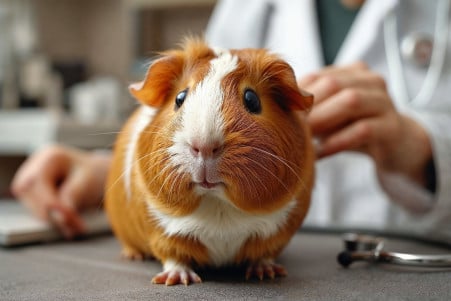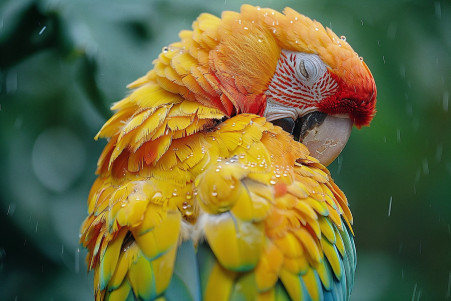Do Guinea Pigs Get Fleas? Prevention and Treatment Tips
21 May 2024 • Updated 20 May 2024

Guinea pigs are popular pets, but they are also susceptible to fleas, which can cause a number of issues for their health. This can lead to concerns about how to prevent and treat a flea infestation. Guinea pigs can get fleas, and they are just as problematic for guinea pigs as they are for other mammals. Fleas bite the skin and suck blood, which can cause anemia, skin problems, and even the spread of diseases or parasites to the guinea pig if the infestation is not addressed.
To help you understand the risks and solutions associated with a flea infestation in guinea pigs, we've reviewed the latest veterinary studies and talked to experts to get the most up-to-date information on this common problem. This article will discuss how to prevent an infestation, the best treatments that are safe for guinea pigs, and how to get rid of fleas in their environment. By the end of this article, you'll know how to recognize and deal with a potential flea problem so that your guinea pig can be healthy, happy, and itch-free.
Can guinea pigs get fleas?
How to Tell If Your Guinea Pig Has Fleas
It's important to catch a flea infestation as early as possible to ensure your guinea pig's health and well-being. According to Guinea Pig Cages, fleas are large enough to be seen with the naked eye, so you may notice them moving around or jumping on your guinea pig. You may also notice flea dirt - small black specks that are actually dried blood from flea bites. Flea dirt is most commonly found around the groin, tail, and up the back.
Other symptoms of flea infestations include constant scratching, hair loss, and visible skin irritation or redness, according to Vets4Pets. The itching caused by flea bites can be so intense that it leads to overgrooming, which can cause bald patches. In some cases, a heavy flea infestation can cause anemia due to blood loss, which can cause your guinea pig to become weak and lethargic.
You may also notice your guinea pig acting restless or showing signs of a lack of energy if they have a flea infestation. It's important to regularly check your guinea pig for live fleas, flea dirt, hair loss, and changes in behavior or energy levels to ensure that you catch a flea infestation as early as possible. Doing so will help you ensure that your guinea pig doesn't experience any unnecessary discomfort or health issues.
Safe and Effective Flea Treatment for Guinea Pigs
Guinea pigs need flea treatment that is made specifically for their species since other flea products can be toxic. Naqua Ltd notes that topical flea sprays or shampoos that are made for guinea pigs are typically safe and effective. In more severe cases, vets may also recommend oral or spot-on medications, like ivermectin or selamectin.
When treating other pets for fleas, it's important to be careful so that the guinea pig isn't exposed to chemicals that could be harmful. Omlet suggests making sure to thoroughly clean and treat the guinea pig's habitat to make sure that all flea life stages are taken care of. This is especially important to avoid reinfestation.
Natural and Home Remedy Approaches to Flea Control
Some pet owners may want to use natural or home remedy approaches to flea control for their guinea pigs. The Guinea Pigs Club lists essential oils like pennyroyal, eucalyptus, and neem oil, as well as diatomaceous earth as common natural remedies. The Walkerville Vet also recommends regular bathing with natural shampoos and keeping the guinea pig's living area clean to help control fleas.
That said, it's important to be careful when using natural remedies, as some can be toxic or irritating if inhaled or ingested by the guinea pig. For example, the Walkerville Vet explains that diatomaceous earth is very irritating to the respiratory tract. Always talk to a vet before using any natural or home remedy flea treatments to make sure they are safe for your guinea pig.
How to Prevent Fleas in Guinea Pigs
Preventing fleas in the first place is much easier and safer than trying to get rid of them. According to Hepper, the first step is to make sure you are treating your pets with flea medication every season, or at least every 6 months, as fleas can be a year-round problem. In addition, keeping your guinea pig's living area clean and disinfected will help reduce the risk of flea infestations, according to State Road Animal Hospital.
Making sure that all pets in the household are treated with flea medication will help prevent the spread of fleas to guinea pigs, according to the CDC. In addition, quarantining new guinea pigs or those that you suspect may have fleas will help prevent the spread of infestations. Finally, keeping your guinea pig away from outdoor areas and keeping the yard clean and free of debris will help reduce the risk of fleas, according to Hepper.
Taking a proactive approach to preventing fleas is important if you want to keep your guinea pig healthy and happy. However, even if you are doing everything you can to prevent fleas, infestations can still happen and can be very dangerous if they are not treated.
Potential Health Risks of Flea Infestations for Guinea Pigs
Flea infestations can have a number of health consequences for guinea pigs if they are not treated. As noted by PetMD, heavy infestations can cause anemia and even death due to the loss of blood from flea bites. In addition, fleas can carry and transmit diseases and parasites, including tapeworms, to guinea pigs.
The Four Paws International guinea pig illness guide explains that severe skin irritation, hair loss, and secondary bacterial infections can result from the guinea pig's excessive scratching and biting. In the most severe cases, the Chicago Exotics Animal Hospital explains that the stress and discomfort caused by fleas can even lead to seizures or other health issues.
It is important to treat fleas in guinea pigs as soon as possible and to do so effectively in order to avoid these health risks. Treating flea infestations in a timely manner can help ensure that guinea pigs remain healthy and happy.
Conclusion: How to Keep Your Guinea Pig Safe and Flea-Free
Guinea pigs are at risk of flea infestations, which can be very dangerous if not treated. Fleas can carry diseases and parasites, cause extreme skin discomfort, and even result in anemia and death in the most severe cases.
Omlet notes that flea treatments for guinea pigs are not the same as those for other animals and that using the wrong product can be toxic. That said, topical flea sprays and shampoos that are specifically made for guinea pigs are generally safe and effective. In more severe cases, vets may also prescribe oral or spot-on treatments.
Some people may want to use natural or home remedies, including essential oils and diatomaceous earth, as recommended by the Guinea Pigs Club. However, these can be toxic or cause skin irritation if not used properly.
It's much easier to prevent flea infestations than it is to treat them. Hepper suggests that pet owners treat all pets in the home, keep the home clean, and limit the time that pets spend outside to prevent flea infestations. It's also important to work with a vet to ensure that your guinea pig is healthy and safe.
With the right information and a little bit of work, guinea pig owners can make sure that their pets are safe and comfortable and that they won't suffer from the dangers of flea infestations.


